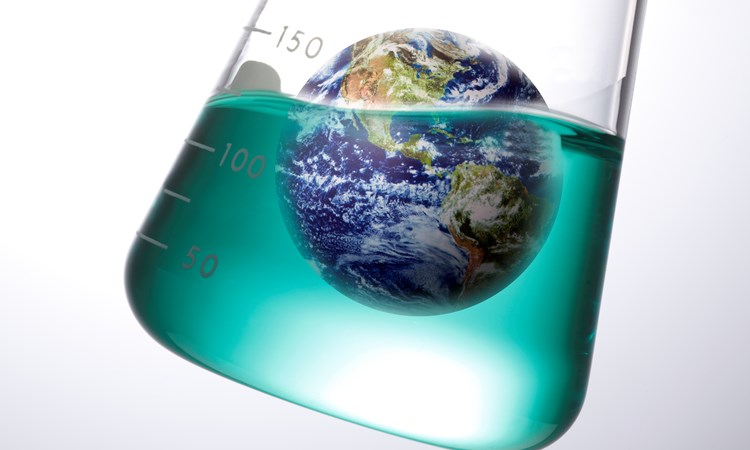
By Chris Pesso
The climate crisis is closely linked to the water crisis. With temperatures fluctuating throughout the world, we have experienced extreme droughts in Somalia, Kenya, Djibouti, and Ethiopia to severe floods in Pakistan. The need to address climate change in a warming world is important, but it’s also important to voice concerns over environmental change.
Persistent Organic Pollutants (POPs) and new Emerging Contaminants (ECs) pose a high risk not only to the health and well-being of humans but also to all other life forms on this planet. PFAS (per- and polyfluoroalkyl substances), a group of POPs that are used so widely around us, have been tagged as an environmental menace for the past two decades. From the textile industry and paper products to the cardboard of your pizza box, PFAS are everywhere. These contaminants ultimately make their way into water bodies and are very difficult to break down, hence being called persistent. Studies have shown that PFAS have the potential to affect the heart and liver. However, there is still so much that is yet to be uncovered.
PPCPs (Pharmaceutical and Personal Care Products), another group of POPs that essentially originates from domestic waste, is a pool of compounds that contain pharmaceutical drugs and parabens from skin-care lotions. In recent years, marine biologists and toxicologists have been studying the effects of parabens (sunscreen/sunblock) on corals, where many have reported bleaching events that were triggered by high concentrations of parabens in the water column. The parabens act as sun blockers in the water column. This prevents sunlight from reaching the coral and thereby mitigates photosynthesis altogether. Without photosynthesis, the coral inevitably bleaches. Many such groups of POPs exist all around us. Pesticides from agricultural lands enter river systems through surface run off. Once these compounds make their way into the environment, there’s pretty much nothing that we can do.
At COP27 the Egyptian Presidency together with the World Meteorological Organisation have jointly declared Actions for Water Adaptation and Resilience (AWARE). This initiative focuses on issues related to increasing water scarcity concerns, decreased water availability (especially in Africa), and understanding the links between climate change and the actions for water. But is this enough?
The Water Day at COP27 would have been a good opportunity to call upon the representatives of the pharmaceutical companies, the pesticide companies, the manufacturers of skin-care products and other products that actively involve the use of PFAS and put them on the stand to take accountability for their actions. A lot needs to be done to clean up this mess, and a good start would be for these companies to pro-actively extend their support to the research and development of environmentally friendly products.
We can only hope that these concerns receive the attention that they deserve and are brought to the table at COP28. Freely moving pharmaceutical compounds in the environment pose the risk of developing antibacterial resistant superbugs which have the potential to send us back to the dark ages of medicine. We need to keep our water bodies clean! We need to act now!
It is sad that the cries of these water bodies did not echo at COP27.

